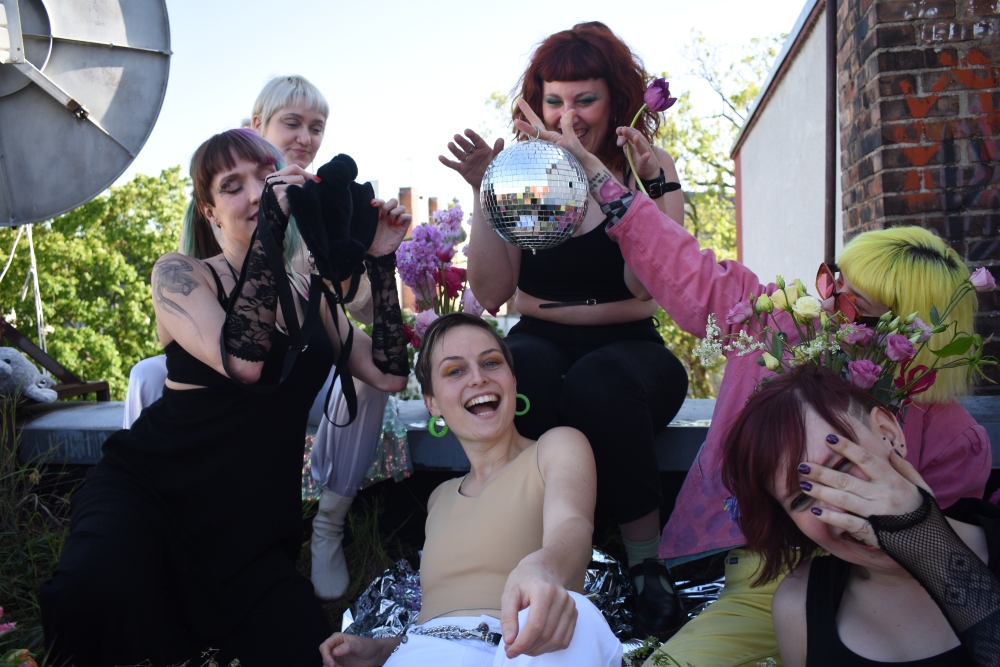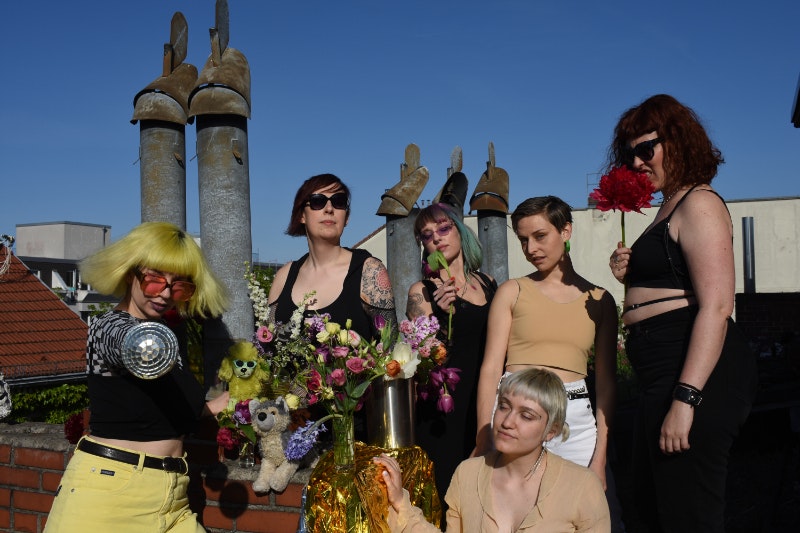
■ Features
Aysun Luna Yildirim, also known as proxy_404, is a member of the Berlin based international crush kollektiv that strives towards building a platform for FLINTA* artists and allies across the globe to connect, build bridges and uplift each other.
In this interview, we chat to proxy_404 about the power of collectives, the challenges associated with forming one and how they can change your individual artist identity.
The origins actually came from a need to connect with other FLINTA*, to DJ together and create a space where we can experiment and grow and see where it leads.
I was taught how to DJ by my ex-partner and when I first started I was in a very supportive but male-dominated environment. At that time, many of us were also not yet so aware of the structures and their respective consequences. After our separation I also lost contact with these circles, but I wanted to grow musically.
I started a call on a social media platform. At the beginning there were three of us, but we felt like it and decided to meet once a month to DJ together. Over the months, more and more people joined and we hosted each other in our own homes.
Everyone had different equipment, so there was a lot of variety and room for mistakes, but we had fun together and started conversations. Each of us brought different genres, different experiences from their jobs, different perspectives but all of us shared the same intention: a desire for a inclusive and diverse scene and an understanding that this requires education, spaces and community. As the interest, demand and our ideas grew, 6 of us decided it was time to form a collective.
We strive towards building a platform for FLINTA* artists & allies across the globe, starting here in Berlin. We want to connect, build bridges and uplift each other, offer safe, inclusive and diverse spaces, learn from each other and most importantly enjoy each other’s company. We would love to give people the opportunity to gain experiences and the bravery to put themselves out there.
The creation of the collective taught me a lot in a short time.
Beyond our political goals and wishes for the DJ scene, there is one level that is very significant - that of community work. Growing up in a society that teaches mainly isolated domesticity, the connections outside of it are fractured. I believe that this also creates a sense of loneliness and a desire to belong.
For me, working together in a collective does not mean creating a utopia, but creating space for all complexities and celebrating the meeting in these spaces. I myself am still at the very beginning of learning to find my way in a collective. I feel insecure, but I am also excited for all that is coming. And I firmly believe that just by learning and sharing through the collective, the ability to make an impact increases.
People inspire me with their music and their energy, I feel supported and it always leads places I didn’t expect to discover. I’m forced to be honest with myself and others.
Being part of a collective means growing interdependently and there is great power in that. I become more confident to be myself and since my identity always influences my art, I can see that changing too.
Becoming an artist was an act of self-love. I put a lot of energy into it and it is my passion.
At present, I can’t survive from solely making art (like many other artists). The balancing act from having “a real job” and doing what I love is definitely a flex. I constantly feel like I don’t have enough time to sleep, to see friends or family or to take time to relax. I also couldn’t be in this position if I didn’t have support.
Being an artist is a privilege that not everyone can have.
Social Media is another aspect that is so challenging. It’s a great platform to network and I use it as my artist portfolio, but there are times where it becomes numbing, overwhelming and just another component of the big consumption machine.
Our monthly DJ sessions that we now host at Pirate Studios in Berlin. Also, we recently started a podcast series, where FLINTA* DJs can submit their set to and get featured.
The greatest achievement was the networking though. Our community grows and so do our opportunities.
There are many! You can look at: RAIDERS, Femme Bass Mafia, hoe_mies, TS Raver, Refuge Worldwide, BLVSH, Berlin Strippers Collective, Kollektiv Vakant, Eclat Crew, un:seen, excuse:u, Dynamic Events, lonely arts collective and probably lots more that I forgot to mention now or haven’t met yet.
Def. some more bar takeovers where people can join us for open decks nights. We’re trying to work out how to apply for funding so that we can also host club nights and give our local community the opportunity to play at a club. At some point we would also like to have events with artist talks, since besides needing and creating joy, we also need to educate ourselves to understand where the structures that we dislike are coming from.

You can keep up with proxy_404 and crush kollektiv by following them on instagram.
Feeling inspired? Book one of our DJ studios in Berlin or Hamburg.
